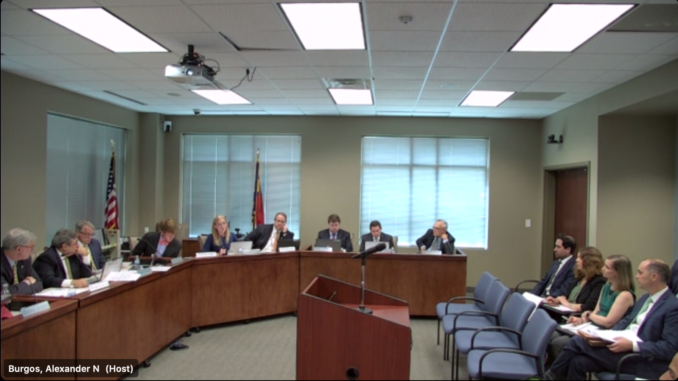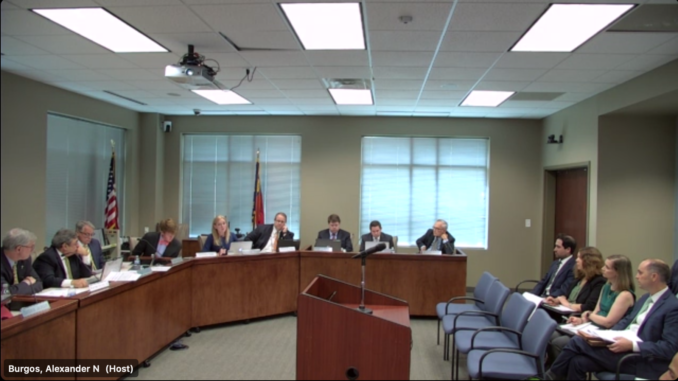

RALEIGH — North Carolina’s Rules Review Commission (RRC) objected to two rules proposed by the State Board of Elections (NCSBE) that would have restricted the movement of partisan poll watchers and made several changes to the ability of election observers to perform their duties.
At the special meeting on Aug. 25, the RRC, which has authority to review and approve rules adopted by state agencies, met to determine if the temporary rules could go forward.
The RRC recommended objecting to both rules in communications made during the week. In both cases, attorneys for the RRC argued that the NCSBE lacked statutory authority to change the rules and that the changes were unclear, ambiguous, and unnecessary.
That echoed public comments made by Republicans, such as election attorney Cleta Mitchell, who argued the changes were “vague, unnecessary, confusing, and raise serious constitutional questions.”
NCSBE Associate General Counsel Paul Cox presented the elections board’s case, saying the changes were needed to both clarify existing rules and due to a survey of county election officials.
Public comments were brought to the meeting by Dr. Andy Jackson of the John Locke Foundation, who said the temporary rules being proposed had a “flimsy” basis, as well as Mitchell, who lives in Moore County.
During her comments, she said that the NCSBE only brought generalized comments without facts of record and stated the RRC existed to ensure state agencies did not overstep their authority.
When the RRC members debated whether the rules should go forward, much of the debate centered on not the content of the rules, but whether the elections board had the authority to enact the changes through the temporary rules process.
That would be the determination of the board, objected to both rules citing that the NCSBE did not satisfy findings of need.
The RRC’s objections mean the NCSBE won’t be able to enact their preferred changes as they did in 2020. Two years ago, the state elections board was able to enact several changes loosening absentee by-mail voting, including moving deadlines through which ballots were due.
The controversial changes led to the resignation of two Republican members of the board, who said after the fact they were pressured to go along with those changes.



